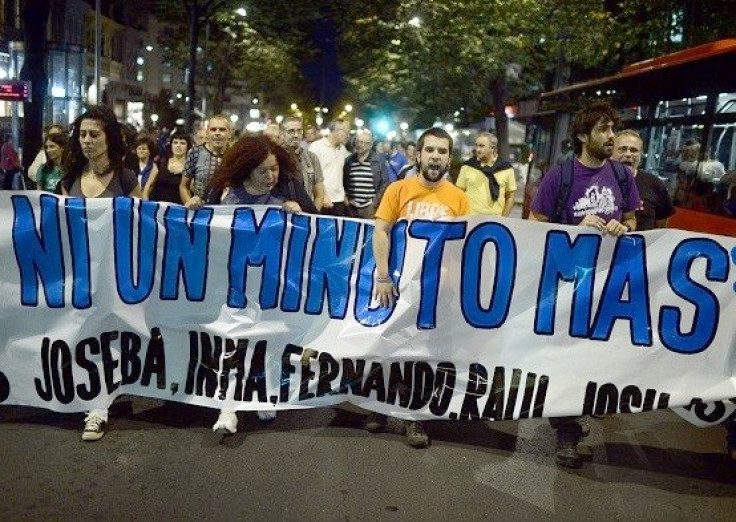Strasbourg's ETA Ruling: A Birthday Present for Basque Peace Process?
ECHR's verdict could provide decisive, peaceful resolution to Europe's longest-running armed conflict

Just two days after the second anniversary of ETA's definitive ceasefire, the European Court of Human Rights has handed down a historic verdict which could provide a decisive, peaceful resolution to Europe's longest-running armed conflict.
This could mean the immediate release of dozens of ETA prisoners who saw their original sentences extended and have remained behind bars for years after their they had been due for release. According to the Great Chamber this was in breach of their humans rights.
Many believe the ruling will mark a turning point in the Basque peace process, which was initially welcomed with great expectation across the Basque country and Spain two years ago, but has suffered from a lack of progress and continued arrests of Basque pro-independence sympathisers.
Repeated calls from most corners of the social and political spectrum in the Basque country, Spain and international mediators and observers (former UN general secretary Kofi Annan and former Irish PM Bertie Ahern among them) have been ignored by Mariano Rajoy's government in Madrid.
Immersed in corruption scandals, a crippled economy and high levels of social unrest, Rajoy can barely afford to be seen giving any sort of concession to ETA by his own constituency. Even if that means trying to circumnavigate the European Court of Human Rights in an effort to satisfy his most radical supporters.
However, the Grand Chamber's ruling could be a blessing in disguise for Rajoy. With intelligence he could argue that the ruling is a judicial, not a political, issue and make a stand to obey the law above all else. At a time when Rajoy has been directly accused of corruption by the former treasurer of his own party, the High Chamber's ruling in Strasbourg could enable him to diffuse any doubts about his own position.
Additionally, he could utilise the current situation to move the stalled peace process forward and add a renewed sense of stability and forward thinking in Spain, which in turn could stimulated foreign investment in its turbulent economy.
As far as the Basque country is concerned, 85% of members of the Basque parliament support the Great Chamber's ruling in the hope of a long-lasting, final settlement which would heal the wounds of all those involved and Basque society at large.
As well as providing a priceless birthday present for the peace process, the Strasbourg verdict could also mean an early Christmas gift for everyone who wants a new beginning in the Basque country.
Asier Odriozola is a Basque national living in the UK. He works as a global communications consultant
READ:
Ines del Rio Prada: Spanish High Court Orders Immediate Release of ETA Terrorist
© Copyright IBTimes 2024. All rights reserved.





